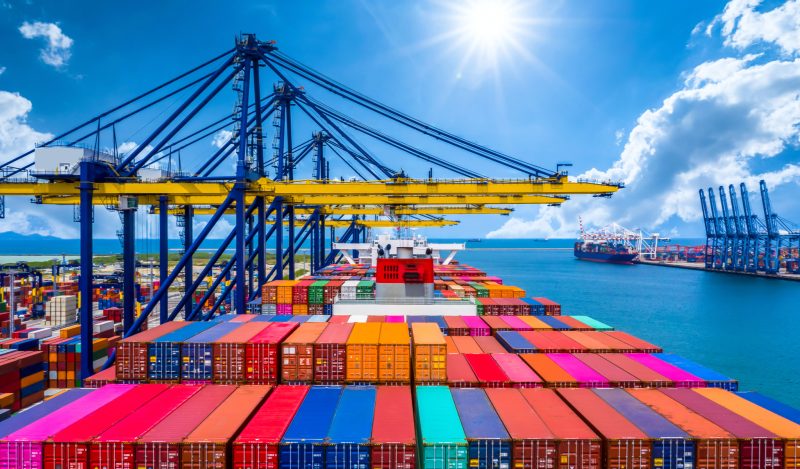In response to my article on the growing goods shortages, I received the following letter, which I found very interesting, particularly on the point about the shortage of trucks themselves. I’m happy to share this with readers.
I was introduced to The Brownstone Institute last week, and if I may say, it is a true refuge in our current seemingly unending storm of disinformation.
As a 42-year veteran trucker, if I may address a few of your points, it may bring some fresh explanations to the quandary in which we find ourselves mired.
The seaports in California are the chief ones finding themselves crippled, and the supposed “driver shortages” (more on that later) are not a direct factor; California’s ridiculous restrictions on trucks are. As with so many other things in the Land of Fruits and Nuts, insanity has a big part in regulations there.
As an example, I am an owner-operator and just sold a 2005 model year truck that was not qualified to operate in California due to it not being current with their pollution equipment. Please understand, that did not mean that my truck polluted excessive amounts; it merely meant that it did not have the equipment the “experts” deemed necessary. This situation is not a rare one, as there are thousands of trucks across the nation that do quite well hauling goods in the 47 states plus Alaska in which they operate.
The point you made regarding the Electronic Log Device (ELDs) is correct, however it is a bit misleading.For decades prior to the advent of ELDs, Rederal Regulations required that a handwritten logbook documenting the periods of work and rest be recorded. Although a few points were changed, by and large the work time is the same, so the only real change is the one of drivers not so easily violating the laws.
Your point on chassis is not clearly understood. The number of chassis has not changed, and since there is a shortage of trucks to haul containers from origin, the number of chassis is of no consequence inasmuch as preventing trucks from rolling. Typically, the containers are lifted directly onto the same chassis that is used to deliver to the customer; it is not an intermediate piece of equipment.
Ports traditionally have had well-developed Unions whose strength are legendary. The ones in California are unfriendly to the point of refusing non-union trucks to enter the port; thus rendering an extremely high percentage (perhaps as high as 90%) unavailable to haul containers. There is no union for Owner-operators, so they are excluded entirely. The enormous trucking companies such as JB Hunt, Schneider, and FedEx are non-union companies also.
Loading onto railcars and shipping the containers to the Arizona state line to change them onto trucks would be a viable solution, but the clear and most sensible one would be for California politicians to remove their heads from the sand and relax the regulations.
As to your mentioning the airline and their current challenges, surely your intent was not to infer there has ever been more than a pittance of competition between the airlines and ground transport of freight. I find it too challenging to respond in a courteous way if that was your point, so I will choose not to do so.
Regarding movements in the rest of the nation, as with anything in commerce or practically anything else, you get what you pay for, and if you do not pay what the market demands, you likely will not get it. The companies, both large and small, are not paying enough to the drayage drivers, Owner-operators, and company employees to fill the gap in what is needed to man the equipment.
The bottom line on the last page of the annual report is the shareholders #1 interest, and companies strive to keep it as high as possible. Something must suffer, and in todays atmosphere of runaway products it is staffing. Raise the rate of pay high enough and drivers will beat the doors down so as to have an opportunity to fill out a job application. Simply put, the “shortage” of drivers could be quickly remedied.
There are thousands upon thousands of drivers being required to stay away from home in excess of 250 days per year on an income of less than $50,000. Road expenses for eating ($20@day) and showering ($12 ea) alone on trips lasting 2 weeks or longer whack that amount down several thousand dollars yearly, and after taxes there is hardly enough to support a family of 4. It should be of little surprise to anyone that there is a dearth of drivers salivating to step into that scenario and apply their nose to the grindstone.
No one has heard the media report on a shortage of trucks, nor shall they; only that of drivers. Consider the extent of their propaganda and also the agenda it follows.Yours is a fabulous gem of a publication Jeffrey, and it is refreshing to have found it. I appreciate both your dedication and resolve. Hammer-down and pour the coffee; let’s go trucking.
Sincerely,
Glynn Jackson
Dallas, Georgia
Published under a Creative Commons Attribution 4.0 International License
For reprints, please set the canonical link back to the original Brownstone Institute Article and Author.









